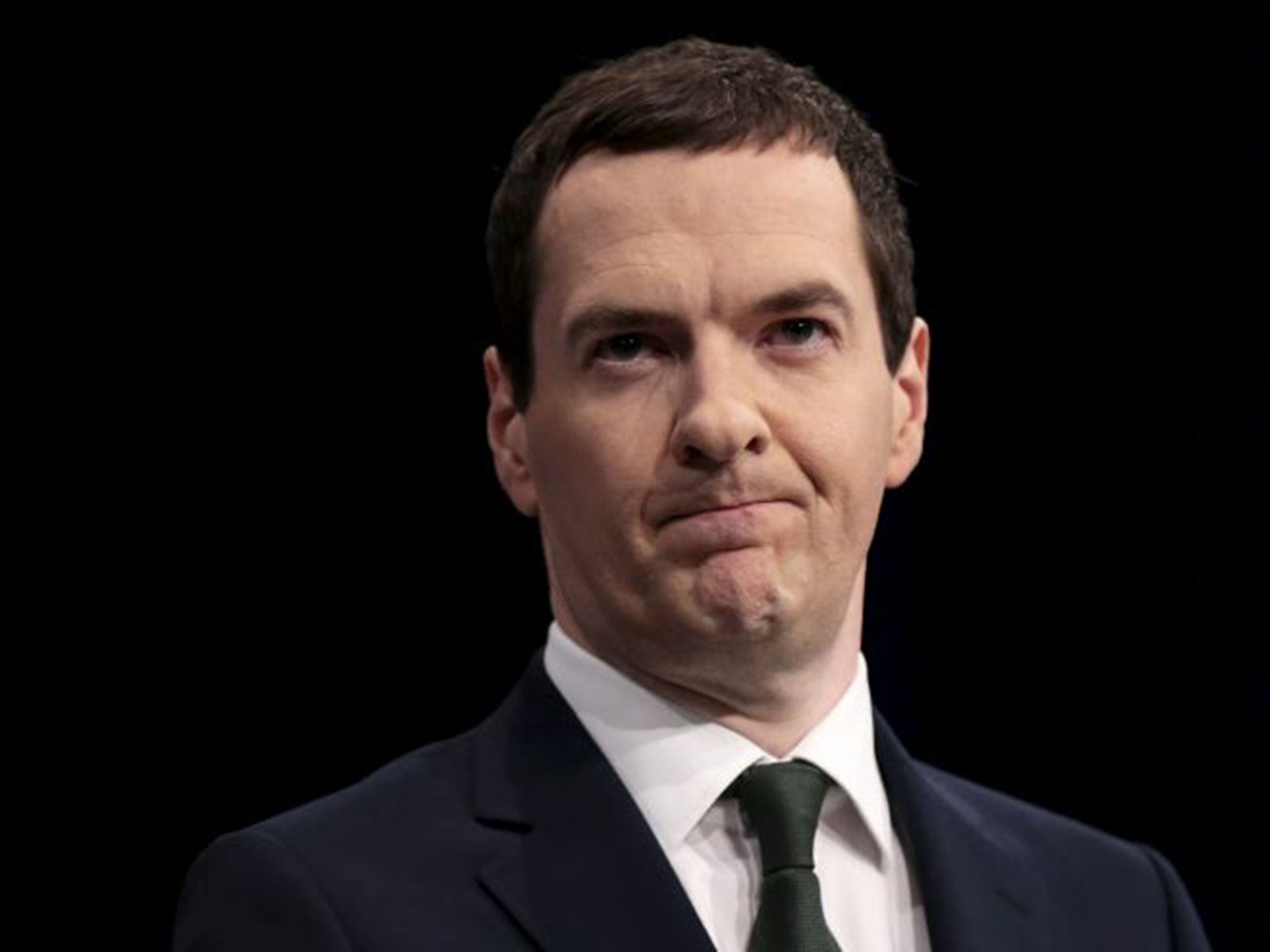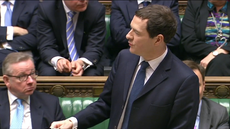The devil is in the detail of Osborne's Omnishambles Budget Mark Two
Our political masters may be out of a job, but whether they are or not, taxpayers will have to pick up the tab


There are three separate stories embedded in Osborne’s Omnishambles Budget Mark Two. One is the career of the man himself, and the emergence of a credible leadership contender in Stephen Crabb. The second is the detail of the Budget – not just the disability element, but the other changes to savings, capital gains and company taxation. And the third is the general credibility of the surplus the Government is committed to running by the end of this parliament.
Of the first, there is nothing much to add except to observe that there is a huge element of chance in politics and that an apparently minor issue – a spending decision costing £4bn, or rather £1bn a year in a total annual spend of £700bn – may wreck a career. Think of it this way: it is like someone on a pre-tax salary of £100,000 (or £70,000 post-tax) fretting about spending an extra £100. As Robert Chote, head of the Office for Budget Responsibility, observed yesterday, this is “not a large number” in relation to other spending. That is why dumping the change was so easy for Crabb.
The story of the detail of the budget is, well, detailed. There are several strands. One is how welfare spending should be allocated. There is a finite pot and the issue is how that should be allocated between two broad groups, the retired old and the working young. As Frank Field, Labour MP for Birkenhead, has argued, the changes in welfare spending since 2010 have protected the old and done a great deal to alleviate poverty among the retired. But this has been achieved at the cost of squeezing the pot available to people under retirement age, many of whom are in low-paid jobs and some of whom have disabilities. He pointed out in an article in the London Evening Standard that welfare spending on pensioners was projected to rise from £105.9bn in 2010 to £117.2bn in 2020, whereas spending on families below retirement age was to fall from £98.3bn to £84.9bn over the same period. The so-called “triple lock” on state pensions is paid for by squeezing the real incomes of working people.
You can be cynical and say that the Chancellor is reacting to the reality that a higher proportion of pensioners vote in elections than younger people, and a higher proportion tend to vote Tory. Or you could say that UK state pensions are still low by European standards and that the retired feel they have saved for their pensions via their national insurance contributions. But the harsh truth is that if pensioners are to get more, other welfare recipients will get less.
The next strand to the budget is the revamping of company taxation. The more you look at the detail of this, the more it seems the Chancellor is making a bet on increasing revenues by attracting more large companies to locate in the UK, and encouraging smaller companies to show profits. He is, so to speak, “playing Irish”. We can have little idea whether this will work or not, but the strategy is abundantly clear: to get more of the global corporate profits tax pot. Seeing the headline tax cuts as a “giveaway” to business misses the point.
Much the same argument seems to be behind the cuts in capital gains tax. Receipts have been disappointing since the top rate was set at 28 per cent. It is difficult for many people to accept that cutting a tax rate increases the revenue, despite what has happened to income tax receipts from the top 1 per cent of earners over the past 30 years. These are now the highest both in absolute and proportionate terms that they have ever been.
The other and even more imponderable element to the story is pension and savings taxation. This is so complex that it will take months, maybe years, before we see how people will respond. But the strategy is to shift from allowing people to build up pension pots tax free and then taxing them when they draw down their pensions, to taxing them up front. That brings forward revenue, at the cost of losing revenue later. If you think that pensions are so important they should be taken out of party politics you would be in good company. A number of people, including Lord Adair Turner, who among other jobs was former chairman of the Pensions Commission, agree.
“Chancellors love the wonderful, beautiful drama of rabbit-pops-out-of-the-Budget-box, but it is not necessarily the best way to create pension policies, which need to last,” he said.
So there is a gamble here. It is that tax revenues will turn out to be better than the OBR at present expects, or indeed can reasonably expect. If that is right, then the big numbers of the budget will turn out to be all right. If not, there will be trouble, and not just for our political masters. They may be out of a job, but whether they are or not taxpayers will have to pick up the tab.
That leads to the third story, the commitment to the surplus. The idea that Budgets should, over the business cycle, balance the budget is a perfectly sensible one. You can have a debate as to whether this should be a target just for the current budget, with investment separately accounted for, but the danger of that is that current spending is disguised as “investment”. Remember how ministers in the Blair/Brown years were schooled to use the word invest, rather than spend. But some sort of discipline is essential, as Gordon Brown recognised with his golden rule.
If you accept this, then years of deficit have to be balanced by years of surplus. Maybe given the growth of the economy, they don’t have to balance absolutely, but the broader point – that strong finances give governments options in tricky times – is indisputable. We still have a huge annual fiscal deficit, so it is reasonable to aspire to a surplus. Germany has one already. Maybe our framework is too rigid, but given the performance of government of all parties over the past half century you can see why many of us think we need something like it.



Join our commenting forum
Join thought-provoking conversations, follow other Independent readers and see their replies